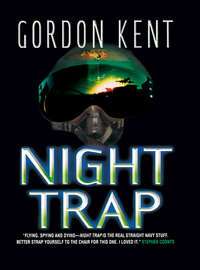
Полная версия
Force Protection
Black smoke was rising from the far end of Moi Avenue. Closer to them, two cars had been pushed into the street and turned over, and men in kanzus and white caps, men in shirtsleeves, men in T-shirts that said ‘Ball State University’ and ‘AIDS Sucks!’ were waiting behind them. Three men were siphoning gasoline from other cars into Tusker Beer bottles, and a boy was stuffing torn strips of rag into the mouths. The running men ahead of the trucks reached the overturned cars and dodged behind them, and a woman carrying a baby, coming more slowly behind the young men, looked over her shoulder at the trucks and wept and tripped on the curb as she tried to reach a doorway. Pulling herself to her knees, she scrambled out of the road. As the nearest truck missed her feet by inches, somebody fired a shot and they drove on.
The drivers stopped the trucks fifty yards from the overturned cars as Molotov cocktails began to fall. They scurried out of the cabs. Soldiers erupted from the rear of the trucks and began to fire through the flames.
Washington.
Fat-eyed, fleshy, scowling, Mike Dukas stood naked in his sublet living room. The television burbled about the problems facing the US administration. A cheerful woman was trying to make news where none existed, contrasting the incumbent with his predecessor to suggest differences that would be all but invisible to, let’s say, a European leftist. Dukas watched her, suffered through the views of two experts, one from the far right, one from the center-right (so much for balance), scratched his belly.
‘I hope they both lose,’ he growled and headed for the shower. He had first heard it said by a black woman happening on a televised football game between Alabama and Mississippi: I hope they both lose. Right on. The upcoming election disgusted him. Two rich jerks, he thought as he turned on the water. The likely choices had nothing going for them but their limitless ambition – and their pedigrees. How is it, he thought as he stepped into the hot water and winced as it hit his chest, that in the biggest democracy in the world, the two best guys we can find are both from private schools and the Ivy League? He soaped himself and bowed his head under the water as if praying. Reaching to expose an armpit to the spray, he winced again: only weeks before, he had taken a bullet in his collarbone, and he still had trouble raising his arms. Out of the shower, he wiped fog from the mirror and stared at the scar, which started just above his breastbone and circled his lower throat like a bubblegum-pink necklace where the bullet had split and plowed two paths along his clavicle. Above the scar, a dissatisfied face stared back at him, pouchy around the eyes, getting lines around the mouth.
‘Not a happy camper,’ he muttered and reached for a towel. He ambled back into the living room, an ugly brown space with nothing of his own about it: he had sublet it, spent as little time there as possible. Still drying himself, he punched his answering machine, and an adolescent-sounding female voice said, ‘Hi, Mister Dukas, it’s me.’ She giggled. Dukas winced. The voice belonged to a smart, naive twenty-year-old named Leslie Kultzke, who was his assistant and who had begun, he was afraid, to hero-worship him. ‘How are you this morning?’ she said. She giggled again. ‘I got in early and brought some Krispy Kreme donuts; I know you like Dunkin’ Donuts, but I think you should just try Krispy –’
But Dukas had cut her off and was staring at the television, where CNN had dumped the doldrums of politics and got itself a red-hot story that was happening in real time. Dukas heard ‘US Navy’ and saw a picture of chaotic motion, a street, a surging crowd, and, as the camera panned, a distant ship half-sunk by a dock, its superstructure tilted away and smoke rising from its far side.
‘– Kilindini Harbor in coastal Kenya, Africa!’ a Frenchaccented voice was saying, his panting breath audible. ‘A ship has been bombed here – nobody quite sure what has happened yet; sources dockside say it is –’ pushing somebody away, breathing heavily – ‘a US vessel and that the bomb was timed to coincide with Islamic demonstrations in this port city.’ The shot zoomed in on the crippled ship. ‘I am at the scene now but –’
Some stringer, Dukas thought, his reactions flashing past as he switched off the answering machine. Some guy just happened to be there with a camera crew. And then he thought, Nothing just ‘happens,’ and he moved closer, squinting at the set to make the picture clearer, because he was an agent of the Naval Criminal Investigative Service, and if it was a Navy ship there would have to be an investigation. And this was evidence. The scene was frozen while a studio newswoman blathered and a line of type moved across the bottom of the screen: Bomb blast in Africa sinks US ship –
And then the guy with the French accent was back on screen. ‘Jean-Marc Balcon, here on the dock at Kilindini, Kenya, where we have just witnessed this heroic moment by a special-forces agent. Here he comes – An incredible feat – this man climbed a dockside crane and took out a terrorist sniper, armed with only a pistol – Here he comes – out of my way – hey, you –! Hey –’
The camera moved, bouncing as the cameraman pushed forward. The French commentator’s breathing was louder as he started to run. The telephoto lens caught several figures moving toward it along the dock. In the lead, half-trotting, was a tall, slender man in casual clothes, carrying a rifle.
‘Holy shit –!’ Dukas mumbled when he saw the man, and he bent down even closer to the screen.
The hurrying man was heading for the ship. The camera zoomed in. Another figure, back to the camera, ran toward him, and now the camera followed, the shot bouncing, the frame teetering, almost spinning. The newsman with the French accent panted, ‘That is him – that is him –’ and the running figure ahead of the camera half-turned to wave the camera on, and it was clear that it was the newsman, running toward the man who had come down from the crane. The newsman reached out to stop the tall man and somebody body-blocked him out of the way, and his muffled ‘Eh – merde – Hey –!’ came from the TV. The camera, however, kept moving, and it had almost caught the oncoming figure with the rifle when he thrust out an arm, then held up a hand to block the lens. There was a moment when his hand was clear, three whole fingers and the stumps of the two that were gone, and then the screen went black.
‘Holy shit,’ Dukas said, ‘Al Craik!’
He grabbed the telephone and punched the NCIS number up from the memory, and when the duty officer answered he shouted, ‘Dukas, special agent. Now listen good! There’s some shit going down in Kilindini, that’s the harbor for Mombasa, Kenya. Got it? Kenya! I want fifteen minutes with the deputy in –’ he glanced at his watch – ‘half an hour, no bullshit about he’s too busy. Number two, I want to know if we’ve got a ship calling at Mombasa. Get on it.’ He’d seen enough of the crippled vessel to know that it was not a fighting ship but some sort of transport, probably USNS, but still within his responsibility.
He looked back at the television. The anchorwoman was trying to make sense of what they had just seen, but she was stalling while somebody offscreen was no doubt trying to get data from the Navy or the Pentagon.
Somebody else, Dukas knew, would be going down a list of Africa pundits to see who would like to put his or her face on national TV at seven in the morning. In half an hour, they’d have a line on it and a story that, if not accurate, would at least have punch and legs. They’re a hell of a lot faster than we are, he acknowledged. But we get it right. Then they played again the clip of the French-accented stringer and the dock and the hurrying man with three fingers.
‘Al Craik! Jesus. Here we go again,’ he muttered. He had recognized Craik hurrying down the dock, recognized, too, Craik’s maimed left hand. Unconsciously, Dukas rubbed the still-red scar on his collarbone; he had got the wound from the same shooters who had hit Craik’s hand. Here we go again. Do I want to go that way again? Then the telephone rang and he picked it up, and it was the duty officer with the word that USNS Jonathan Harker was scheduled to call in Mombasa as of day before yesterday, leaving tonight, local time.
Here we go again. Do I want to get shot again?
He called his own office, and Leslie picked up on the first ring. When she heard who it was, her voice changed from brisk to tender, and she said, ‘Oh, Mister Dukas,’ in a way that made him wince again. ‘Did you get my call about the –?’
He cut her off. ‘Put a message in the deputy’s box; mark it “urgent”. Here’s the message; take it down and read it back to me when I’m done. “Special Agent Dukas urgently requests assignment to investigation of bombing at Kilindini, Mombasa, Kenya. Important that we move quickly and have a team on-site no later than tomorrow. Dukas will be very unhappy if he is turned down.’ Read it back. Good. You’re doing good, Leslie.’ He didn’t give her time to hero-worship; he hit the fourth number in the phone’s memory and got a house in suburban Houston, where it was only five a.m.
‘Hey, Rose, wake up, babe,’ he said, making his voice falsely light, ‘your husband’s on CNN. It looks like I got to go save his buns again.’ He spent two minutes telling Commander Rose Siciliano that her husband was alive and well and on CNN; then he stared at the wall, as people will when they are in the middle of a mess of details and they want a moment of clarity, and then he put his hand back on the telephone and dialed another number at NCIS.
‘Hey,’ he said. ‘It’s Dukas. Hey, Marie, check and see if a lieutenant-commander named Alan Craik was issued an international cell phone, will you? He was doing a favor for us and the FAA, checking out security in Nairobi, Kenya. I want to know if he got a phone and, if so, what the number is. Can you do that? You’re a sweetheart. I love you. No, it’s real love – Romeo and Juliet stuff. It may last, oh, until lunch.’ He made a big, smacking kiss noise.
On his television screen, Al Craik shot the sniper for the fifteenth time.
USS Thomas Jefferson.
Jack Geelin, Marine captain of the Jefferson’s thirty-man detachment, had a message thrust into his hand in the p’way as he made his way forward toward the flag deck. ‘On the double, Jack – Captain Beluscio wants you there ten minutes ago.’
‘What the hell –?’
‘Read it!’ The lieutenant-commander was already hurrying down toward frame 133 and the intel center. Geelin broke into a trot, trying to read as he went, dodging people hurrying the other way. Three sailors had flattened themselves against the bulkhead to let this explosion of activity go past. Whatever it is, it’ll be all over the boat in three minutes, Geelin thought. He managed to make out words of the message: Mombasa harbor…USNS ship…possible terrorist…immediate help being requested for…
He ducked into the next doorway and grabbed a phone. ‘Gunny! Captain Geelin! Roust ‘em out – full combat gear, on the double! Yeah, the whole goddam detachment – I want ‘em on the deck, ready to go ASAP – move ‘em! –’
One Mile from USS Thomas Jefferson.
LCDR Paul Stevens brought the S-3 to eight hundred feet as if he was parking it there and glanced down and around. Soleck, despite having his own tasks for the landing, was able to watch him, admiring the man’s competence despite himself. Stevens was so experienced, so good, that what to Soleck was thought and work was to Stevens a set of habits, yet habits that had not grown tired: Stevens seemed always ready for the unexpected in the flight – another aircraft too close, a change of wind, a turning of the CV. Always bad-tempered, he actually seemed calmer in emergencies.
Now, Stevens rattled through the landing checks, Soleck hardly able to keep up with his responses. The wonder of it was that Stevens was actually checking the stuff that he seemed to be hurrying through.
‘Fuel –’
‘Right tank uncertain –’ Soleck started to say.
‘Eight thousand,’ Stevens said, and went into the break. ‘Going dirty,’ he muttered, hitting slats and flaps, and the big, fat aircraft slowed as if it had been grabbed by the tail. Around it came, settling into the approach as steady as a kite towed behind the CV, losing altitude and speed and touching down to catch the two wire. Soleck thought how it must look on the Plat camera, how the LSO would rate it – another okay – and all the guys in the ready rooms saying, Nice job. Jeez, that guy can fly. ‘Nice landing,’ he said.
Stevens watched the yellow-shirt below him as they rolled to a stop. ‘Hey, coming from you, that means a lot to me.’
Three minutes later, loaded with helmet bag and kneepads and MARI tapes, Soleck was heading over the nonskid for the catwalk and a slider.
Why does Stevens have to be such a prick? he was thinking.
To his surprise, Stevens was waiting for him at the hatch. ‘Been thinking about your wetting-down party,’ he said. ‘Just buy everybody a beer.’ And went into the light lock without holding the door for the over-burdened Soleck.
Mombasa.
‘We need goddam muscle!’ Alan shouted into his cell phone.
‘Get us some cover, for God’s sake!’ He had managed to raise LantFleet intel in Norfolk – a number he knew by heart – on his new, supposedly international, cell phone, but the signal was weak and the reception spotty. On the other end, a confused duty chief was trying to figure out why somebody was shouting at him from somewhere in Africa.
‘Sir, this isn’t a secure line –’
‘Fuck security! We’re dying here!’
‘Sir, I got no authority.’ Over the satellite, it came through as Sir – got – o – auth – ty.
‘Chief, pass the goddam message, will you? Mombasa, Kenya; USNS Harker, hit by an explosion and under fire, I have a Navy admiral and an NCIS special agent missing –’
‘There’s ships in your area, sir –’
‘Chief, our comm is down to one mayday frequency! Pass the fucking word for us, will you!’
‘I can notify Ops –’ I ca – tify – ps.
‘And then call the naval attaché in Nairobi; he’s got to get us some onshore support here – cops, the army, whatever – we’re pinned –’
‘Choppers and Marines, sounds like what you need.’
‘Choppers’re just more targets until we can secure a perimeter! Chief, we’re a decoy – we’re helpless, we draw in choppers, they shoot them down. No choppers yet!’
Then he really started to break up: ‘You telling me the – sage – to – there, sir? Sir – me get – straight –’
At that point, his voice faded and the line began to crackle. Alan shouted, ‘You’re breaking up!’ and he heard incoherent babble from the other end. He punched the phone off, watching the battery signal flash at him. How much time left?
He looked at the Harker’s radio man. ‘I’ve gotta have a radio link.’ He threw the cell phone on the tilted desk. It had been shoved into his hand, still in its plastic wrapping, when he had left Norfolk – memory empty, ability to find satellites untested. Now he was concluding it was a piece of crap.
The communications man looked barely out of his teens. He had come through the explosion with a forearm slashed by flying glass, had stayed at his post, put out his calls for help. ‘I’m working on it. Can’t you make a local call someplace?’
Alan thought of local friendly assets. There used to be an air force unit at the airport, but they had been pulled out, and it was their abandoned hangars that his detachment was to use. The British had had a regiment up the coast for decades, but they were gone now, too. He thought of the two Kenyan officers he had fought alongside in Bosnia – what the hell were their names? And where were they now? And how would he reach them? The last thing he wanted to have to depend on was a third-world cell-phone network in the middle of a citywide riot. Would rioters tear down cell-phone towers? he wondered. Why not? As useful as burning cars, wasn’t it?
Suddenly, he said, ‘The Kenyan Navy – Jesus, they’ve got to be here somewhere! There’s got be a Kenyan naval facility at Mombasa!’ He picked up the cell phone and punched in a number that he hoped was right. ‘NCIS, Washington – they can find the Kenyan Navy for us. Shit –!’ He looked around a little wildly; the cell phone wasn’t connecting with a satellite. ‘All this fucking metal –!’ He stared at the communications man. ‘You got any local telephone numbers?’
The man opened his hands in helplessness, then gestured around them. The comm office was a mess; the ship had tilted, and what hadn’t been shaken by the blast was now tipped on the floor – pubs, gear, a cup of long-forgotten coffee.
‘What’s your name?’
‘Uh, Hansen – Joe.’
‘Hansen, we’ve got to get a number for the Kenyan Navy.’ He punched the numbers for NCIS Washington into the cell phone. It was ridiculous: he was halfway around the world and he was calling home. ‘If it doesn’t work, try a local operator. Try directory assistance, whatever the hell they call it here. Try our embassy; that’s in Nairobi. Try –’
A dark head popped in the broken door. ‘Fireboat is pumping water in – they think they got the fire limited now –’ It was Patel, the Indian who had come down from the riot with him.
Alan ran out to the catwalk that curved around the superstructure. Water began to fall on him like rain: the fireboat.
‘Great –!’
A bullet pinged off the steel bulkhead.
‘Oh, shit –!’ Instinctively, his wounded hand contracted into what was left of a fist.
Somebody had started shooting from one of the warehouses along the dock. Not a very accurate shooter, but real bullets. The few men available to do damage control on the Harker were belowdecks, thus safe from sniping; the wounded were up on the main deck now, protected for the moment by the ship’s list to port. But up here on the superstructure, they were exposed.
Three levels above him, Jagiello, another who had come with him from the city, was supposed to be sitting with the rifle Alan had taken from the sniper. He was a deer hunter, he had said. He’d drill anybody who tried anything.
Well, why wasn’t he shooting?
Alan crouched behind the solid starboard rail. ‘Hansen!’
‘Sir –?’
Alan looked up, waved him down. ‘Get down on the deck –!’
‘Get out here but keep down!’ When the younger man appeared, ape-like on toes and fingertips, he shouted, ‘Get down! Way down – that’s it. Try that cell phone out here.’
‘I’ve got to get a radio hookup.’
‘Try the cell phone – that’s an order.’
Neither of them was sure that Alan had official authority on the Harker, but Hansen seemed to recognize that Alan had authority of a different kind. He rolled on his elbow and began to punch the phone.
Alan drew the H&K and tapped two quick shots in the general direction of the sniper. ‘Fat lot of good that’ll do,’ he muttered. Where the hell was the guy with the sniper rifle? He peered out through the gap between the steel plates of the bulkhead. The warehouse had a long row of clerestory windows, the glass blown out of every one by the blast. The shooter could be in any of them. It hardly mattered; the range was ridiculous for a pistol, anyway. Still – He saw movement, aimed quickly, fired. Behind him, Hansen was muttering into the cell phone, his long hair plastered to his head by the falling water.
‘Got them?’
Hansen held up a hand, shook his head. Alan looked again at the warehouse, saw a silhouetted head, aimed more carefully and fired. Hadn’t there been some famous pistol shooter who enjoyed shooting at gallon jugs at a hundred yards? Oh, yeah. Do better throwing wads of Kleenex.
‘They won’t talk to me,’ Hansen said behind him. His young face was red with anger. He held out the phone. ‘They’re asking me for ID.’
Alan grabbed the phone. ‘They still there?’ He slammed the cell phone against his ear. ‘Hello! Now listen up. This is Lieutenant-Commander Alan Craik, US Navy.’ He rattled off his service number. ‘I’m under fire and I need help and who the hell are you?’
‘Uh – sir, this is Special Agent Gollub, NCIS Washington. Uh, sir –’
‘Goddamit, Gollub, don’t dick with me! I’m on a ship that’s been hit by an explosion, people are shooting at us, and I’ve got one goddam pistol! Get me some fucking help!’
‘Sir, we’re the Navy’s investigative serv –’
‘Then fucking investigate! I want the contact info for the Kenyan naval facility, Mombasa, Kenya. Right now! Do it!’
‘Uh, sir, your language is not –’
‘Do you know Mike Dukas?’
‘Uh, yessir, I know Special Agent Dukas by sight and repu –’
‘Well, if you don’t find me that information right now, I am personally going to have him tear your fucking throat out, because he is my asshole buddy! You follow?’ He put his eye to the gap in the steel plates, saw the head again, and fired. ‘Did you follow me, Mister Gollub? Hello? Gollub? Goddamit –!’
‘You want the Kenyan Naval Maritime Patrol Center, Kilindini, Kenya. The telephone is 596–987. They communicate on the following frequencies: a hundred and –’
‘Don’t tell me; tell this guy.’ Alan handed the phone to Hansen. ‘Get the phone number; screw the frequencies.’
He looked through the gap again, saw the head, fired three shots. There! Bang-bang-bang – body, body, head! Right? No, missed with every one.
Gallon jugs at a hundred yards. Jesus! ‘Where’s that guy with the sniper rifle?’ He tipped his head back, looked up the side of the superstructure. ‘Hey! Yo!’ What the hell was his name? Jagiello! ‘Jagiello, what the hell are you doing?’
He scuttled into the comm shack after Hansen. ‘You get the number?’
‘That guy said he was going to report you.’
‘Right, I’m really worried about that. Did you get the number?’
‘Yessir. What you want me to say?’
‘You say that Lieutenant-Commander Craik, US Navy, is asking – asking – for their support and cooperation. He is under fire on USNS Harker, hit by an explosion thirty minutes ago. We are in a hot zone – use those words, “hot zone”. They got a problem, give me the –’
Both men lifted their heads as the unmistakable sound of a rocket engine whooshed closer. Hansen’s eyes were wide. ‘Hit the deck!’ Alan shouted, but the missile was already by them, the sound decreasing, and then there was an explosion.
‘Sir, sir –!’ It was Patel, the lookout on the bridge. He came scrambling down the catwalk, half-fell into the room, still on all fours. ‘Sir, they are shooting missiles at the fireboat! Now it is on fire!’
Houston.
Rose Siciliano Craik was accustomed to waking with first light. Mike Dukas’s call had come a little earlier than that, but now, fifteen minutes later, she was up and moving quickly through the habitual motions of the morning. Brush teeth, shower, turn on television; dress in T-shirt and jeans and slippers, make coffee, watch the clip on CNN, check e-mails; feed the dog, check the kids (both still sleeping), drink coffee. Try not to think about where her husband was. Make lunches while standing at the kitchen counter, a book of engineering drawings of the space shuttle open in front of her, because she was beginning astronaut training. Try not to think about her husband.
Try not to think about her mother.
Her father had called her last night. Her mother, he said, had ‘gone funny.’ It had taken her a while to get him to explain what he meant. Her mother was forgetting things. Had been, he confessed, for some time. I didn’t want to worry you.
Thinking, when she wasn’t thinking about her mother, of that three-fingered hand coming up on the television screen, knowing how much the wound dismayed him. A proud man, perhaps vain, hating disfigurement; former wrestler, too aware now of holds he couldn’t make. Stupid little things really throw us, she thought. Poor guy. His first lovemaking had been awkward, hiding the hand. At dinner, he had kept it in his lap.







